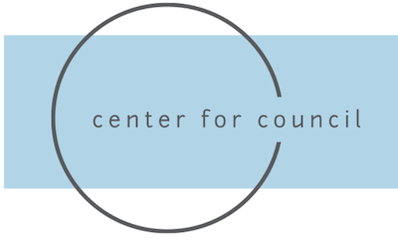 "Love and compassion are necessities, not luxuries. Without them, humanity cannot survive," ― Dalai Lama XIV Compassion has the capacity to transform the world. It enables us to develop great insight into other people's suffering and to take meaningful action in response. It is the ability to identify with and feel the emotions of others and connect with the motivation and resolve to take action to lessen their suffering, while remaining intact ourselves. Compassion is not only an emotion, but also a practice. As Buddhist scholar Joan Halifax observed, “Compassion is made up of non-compassion elements that are trainable.” In other words, compassion can be nurtured and grown. In his book, Where Compassion Begins, Center for Council Executive Director Jared Seide makes the case that compassion is only possible if we begin by slowing down, taking a backward step and cultivating a practice of paying deep attention. A consistent mindfulness practice like meditation increases our capacity to be present, aware of others, and to respond to their needs in a loving and understanding manner. Loving-kindness meditation is an example of a technique for increasing compassion. This sort of meditation focuses on our feelings of love and friendliness toward one another and toward ourselves. We can learn to develop compassion for ourselves and others, even under trying circumstances, by frequently practicing loving-kindness and other forms of meditation. By using less formal mindfulness techniques, one can also grow compassion. Being more mindful might mean becoming more conscious of the thoughts, feelings and sensations arising in us that we often ignore. It can also open our eyes to new ideas and new understanding of the people we interact with, as well as the world around us. As a result, we may develop a deeper sense of empathy for ourselves and other people, and a better capacity to respond kindly and compassionately to those in need. We can also cultivate a more wholesome practice of self-care and more mindfulness of our capacity and wellbeing. We can learn to be kind to and understanding of ourselves, even in trying circumstances, if we exercise compassion towards ourselves. This can lessen stress and anxiety symptoms and increase emotions of wellbeing, as well as make us more effective. Building compassion through meditation and reflection does not need to be done solo! Council is a practice of deepening compassion in a group setting. By sitting in circle with others, building self-awareness and experiencing empathy for the stories and experience of others, we understand others more deeply and start to feel profound connections through our shared narrative. We often experience someone speaking of an experience or feeling that resonates deeply with our own experience. Council can be a powerful and collaborative experience of growth, both as an individual and as a community. While we can get mired in our own drama and concerns, as well as the over-stimulation of today's fast-paced society, taking time to cultivate compassion for ourselves and others can enhance our lives and make us more effective. Whether we consider compassion to be a virtue, an emotion, or a practice we can increase our capacity and focus on living a balanced and beneficial life and that has the power to transform society. And compassion is also a crucial self-care technique that reminds us to treat ourselves and others with kindness and understanding, even in trying circumstances, and to avoid common responses to stress like burnout, numbing and empathic distress. Compassion has the potential to change the world by fostering more tolerant and helpful communities. Council offers a compassion-based practice that enables us to build more cohesive and beneficial groups that can have a great impact on creating a more harmonious and connected world. “Compassion is the basis of morality.” ― Arthur Schopenhauer
0 Comments
Leave a Reply. |
Categories
All
Archives
March 2024
|
|
|
About |
|

 RSS Feed
RSS Feed
